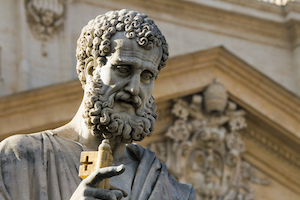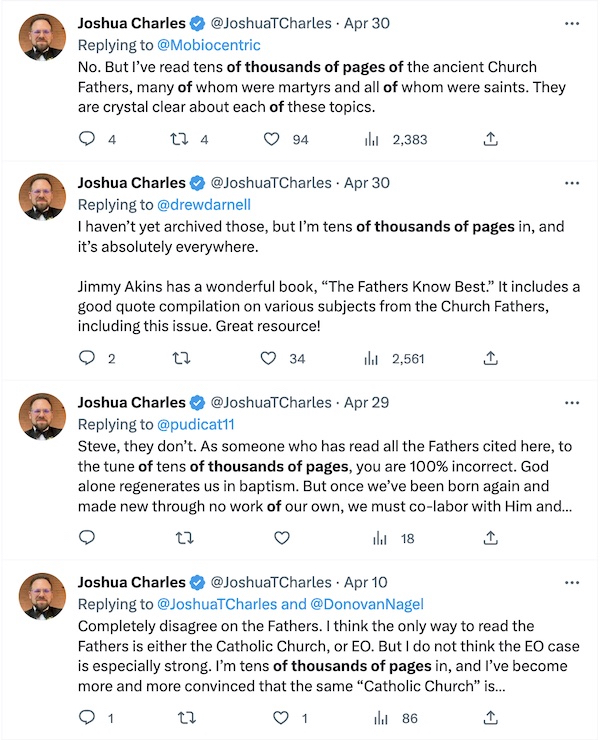
One of the blessings of the chronological record of the life of Christ’s apostles is the ability to peer into their personal growth as they transition from common men to passionate evangelists. The carnal ambition and obstinacy of John, James, Peter and the rest are on full display, and Paul’s unrestrained indignation at the New Way is well-documented. But they came around, and their transformations are both informative and inspiring.
But at one point in their sanctification, Peter and Paul appear to come to opposite conclusions about something that ought to have been quite clear: each appeared to think God had chosen him to be the apostle to the Gentiles.
At the Council of Jerusalem, Peter appeared to be quite sure God had chosen him for the task:
“Men and brethren, ye know how that a good while ago God made choice among us, that the Gentiles by my mouth should hear the word of the gospel, and believe.” (Acts 15:7)
But in his letter to the Galatians, Paul was quite sure God had committed that ministry to him, and that Peter’s ministry was to the Jews:
“… the gospel of the uncircumcision was committed unto me, as the gospel of the circumcision was unto Peter; (For he that wrought effectually in Peter to the apostleship of the circumcision, the same was mighty in me toward the Gentiles:)” (Galatians 2:7-8)
Their inscripturated teachings support Paul’s assessment, for Peter wrote to the “diaspora (διασπορά),” the “scattered exiles” in Asia minor: “Pontus, Galatia, Cappadocia, Asia, and Bithynia” (1 Peter 1:1). These “scattered exiles” are the same “twelve tribes of the disaspora” to whom James wrote (James 1:1). Indeed, many thousands of Jews had been relocated to Asia Minor by Antiochus III centuries earlier. The region is precisely where many of the “diaspora” had been scattered. Paul, on the other hand, wrote to the gentiles (Romans 11:13), as his many letters also attest, for God had sent him “far hence unto the Gentiles” (Acts 22:21).
So, who was “Apostle to the Gentiles”? Was it Peter? Or was it Paul? Was either, or were both, confused? Continue reading Apostle to the Jews
 Follow
Follow


 Yet, upon inspection it is clear that while he may have looked at tens of thousands of pages, he did not read them all, and those he did read, he interpreted though a medieval Roman Catholic lens instead of in their native historical context. And still others, heavily redacted by the scholars, are made to appear Roman Catholic while obscuring their very “Protestant” underpinnings. This fact the scholars freely and often admit, though Mr. Charles appears to be ignorant of it. And thus, skimming the Early Church Fathers, interpreting them through a carefully crafted medieval lens, swallowing whole the grotesque redactions and intentional mistranslations, Mr. Charles thinks to have arrived at the Church Jesus Christ founded. Instead he has arrived at a tasteless and extravagant imitation of it. And that, says Mr. Charles, is the church to which we should all convert.
Yet, upon inspection it is clear that while he may have looked at tens of thousands of pages, he did not read them all, and those he did read, he interpreted though a medieval Roman Catholic lens instead of in their native historical context. And still others, heavily redacted by the scholars, are made to appear Roman Catholic while obscuring their very “Protestant” underpinnings. This fact the scholars freely and often admit, though Mr. Charles appears to be ignorant of it. And thus, skimming the Early Church Fathers, interpreting them through a carefully crafted medieval lens, swallowing whole the grotesque redactions and intentional mistranslations, Mr. Charles thinks to have arrived at the Church Jesus Christ founded. Instead he has arrived at a tasteless and extravagant imitation of it. And that, says Mr. Charles, is the church to which we should all convert.